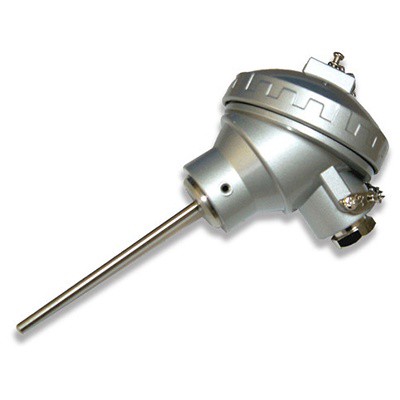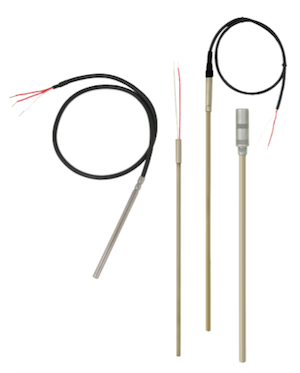
 TR10 and TR40 RTD temperature sensors are suitable for industrial temperature sensors for high vibration applications
TR10 and TR40 RTD temperature sensors are suitable for industrial temperature sensors for high vibration applications
Some vibrations are expected to occur in industrial and commercial applications, but the sensors of most industrial thermometers will fail after exposed to significant vibration. Weilian's TR10 and TR40 resistance temperature detectors are designed for high vibration environments.
Power plant and chemical industry depend on the production of a large number of mechanical vibrations. Pumps, compressors, motors, and turbines are likely to produce acoustic vibration, and then transform into structural vibration. Most industrial thermometers have precision sensors. When they are exposed to this condition, these sensors may be damaged and invalidated.
The advantages and disadvantages of various industrial temperature sensors
Thermocouple is an excellent temperature sensor suitable for a series of processes. They are anti -vibration and economic high -efficiency industrial thermometers, and have a fast response time within a wide temperature range. However, although thermocouple has good accuracy, the accuracy of RTD is higher. At the reference temperature of 0 ° C, the reading of the readings of thermocouple is ± 1.1 ° C, while the read number of the read number of RTD can be as small as ± 0.15 ° C -depending on the sensor type. In addition, some devices are not equipped with thermocouple sensor input.
Winding RTD is very accurate throughout the temperature. However, vibration and mechanical stress can damage its fine platinum wires, causing inaccurate temperature measurement or noise in the signal output, and eventually leads to the opening. For customers, fragile industrial thermometers mean the increase in the frequency of sensors and higher operating costs.
The film RTD has high precision and vibration resistance. They have a film resistor, which consists of a very fine metal layer deposited on the ceramic base -usually platinum, but it can also be copper or nickel. The glass layer seal the metal film and wire. The sensor element of this type of industrial temperatureometer does not depend on a long and crispy wire. Its compact size, smaller quality, and non -moving parts make them very easy to withstand vibration.
Weilian vibration industry temperature sensor

TR10 type thermal resistance sensor
Weilian's two film RTDs are very suitable for high vibration applications.
Standard TR10 RTD sensor can withstand the force (peak) of up to 6 g, and can provide optional anti -vibration versions, with a force of up to 20 g. For the high -vibration anti -vibration version of the sensor's tip that can withstand up to 50 G, Weica provides a thin film measurement resistor with a special structure.
Vibration resistance is only one of the many advantages of this industrial temperature meter. The TR10 series also has:
● The sensors that can be installed in the process of thermocouple sleeve are directly installed in the process.
● Explosion -proof hazardous places, essential safety, import protection and electrical certification in general areas.
● 2 lines, 3 lines or 4 line configuration.
● A variety of protective materials, including stainless steel and other corrosive and oxidized alloys.
● The temperature range of the standard model is very wide, from -200 ° C to 600 ° C (-328 ° F to 1,112 ° C). For anti -vibration tip, the temperature range is -50 ° C to 500 ° C (-58 ° F to 932 ° F).
● Custom -optional connecter head, plug -in design, wiring terminal, transmitter , neck growth parts, thread size, size, cover material, etc.

TR40 Cable resistance thermometer
The TR40 cable resistance thermometer has the tip of metal probe that is designed directly into the process or entering the drill. Like TR10, the TR40 can choose the tip of the vibration probe, which can withstand up to 20 G (vibration -resistant) or 50 g (high vibration anti -anti -anti -anti -anti -anti -vibration) force. In this extremely strong version, special resistors can resist high load -up to 100 m/s2.

